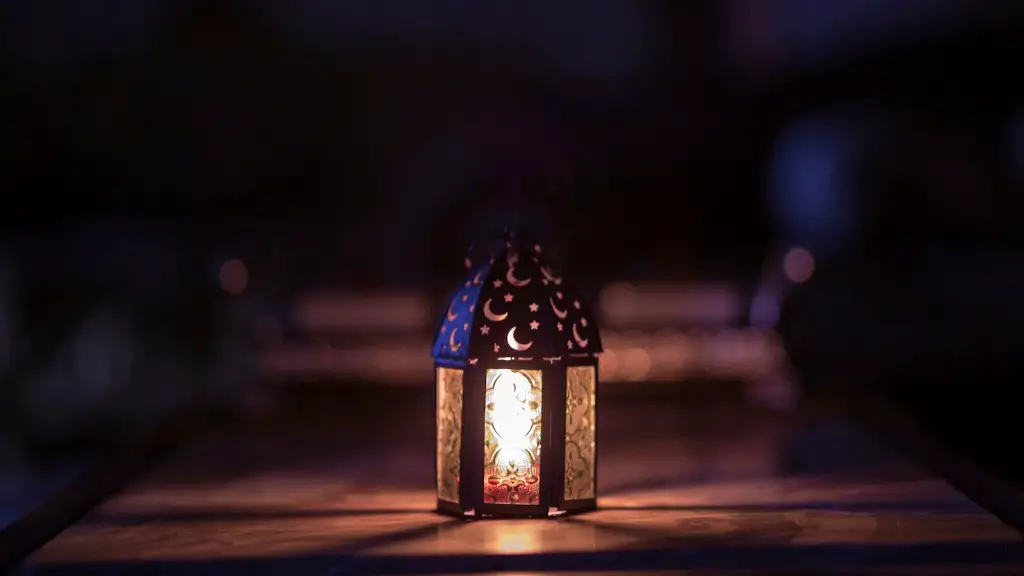The Origin and Meaning of Kaddish
Kaddish is an ancient Jewish prayer, which has been said for centuries, that has several meanings and is used in many different settings. The name Kaddish is derived from the Hebrew root word Qadosh, meaning ‘holy’ and Kaddish is reported to be the most holy prayer in Judaism. It is most commonly used at memorial services, during weekly Shabbat services, and during important and solemn holidays.
The Kaddish is rich in symbolism and prayerfully expresses the unity and power of God, as well as one’s commitment and loyalty to Jewish tradition. In the Kaddish, first and foremost, Jews affirm their belief in God and His superiority, and thank Him for the bounty of creation and for the gifts of life and sustenance. Jews also challenge themselves to follow the teachings of their faith, to take part in religious ceremonies, and to strengthen the institutions that support their faith.
The Text of Kaddish Prayer
The Kaddish prayer is composed of three parts, the most important being the Kaddish itself. The first part is the Kaddish Yatom, the mourner’s Kaddish, which is recited by a mourner during the services. It comprises a long prayer in Aramaic, asking for God’s forgiveness and mercy of the deceased. The second part is the Kaddish Shalem, which is a general prayer in Aramaic, recited by the entire congregation. The third part is the Kaddish deRabanan, or Kaddish of the Rabbis, which is recited by the congregation in response to the Kaddish Yatom. This prayer is in Hebrew and praises the work of the rabbis and the spiritual successors of Moses.
Kaddish in Jewish Custom
In Jewish custom, Kaddish is associated mainly with death and mourning. In Judaism, mourning is a community event and the Kaddish serves as a communal response to a death in the family. The mourner’s Kaddish is said for 11 months after a death in the family, and on the anniversary of the death. During a funeral ceremony, the mourner’s Kaddish is traditionally said by the immediate family of the deceased. It is also said during the weekly Shabbat and festival services, providing an opportunity for those attending to connect to their faith community.
Kaddish is also said during times of joy, such as at weddings and bar mitzvahs. The use of the Kaddish in joyous times reinforces the idea that celebrating Jewish customs and traditions is a sacred act that brings God’s blessing.
Controversy
The Kaddish prayer has come under criticism from some in Orthodox Jewish communities for its exclusive use of male pronouns and male imagery. Some have argued that this renders the prayer exclusionary and outdated, particularly since it’s said by both men and women. In response to those concerns, some congregations have adapted the prayer to include both male and female imagery. However, these alterations to the prayer have been criticized by other observant Jews as contrary to Jewish tradition.
Variations
Kaddish is also said in other Jewish denominations. In stand-alone Reform synagogues, the Kaddish is optional. The Kaddish prayer is also adapted to different services, including those that do not involve traditional liturgy or that have nontraditional themes. In this version, the prayer is re-interpreted in order to reflect values or topics that are of relevance to the service.
The Sanctity of Kaddish
Kaddish remains a very sacred act. The prayer serves to provide consolation to the bereaved, as well as to recognize each person as valuable, as part of an ongoing cycle of life, death and rebirth. By reciting the prayer, Jews show their dedication to their faith and the continuity of Jewish tradition. As part of the cycle of life, Kaddish serves to help mourners with the grieving process and to ultimately find peace.
The Role Of Women
At present, women are not obligated to recite the Kaddish prayer upon the death of a relative, though many women do, since it is considered to be a mitzvah, or a religious act. Only men are required to recite the Kaddish, since that is the religious tradition. While traditionally, only male relatives of a deceased are obligated to say Kaddish, it is becoming increasingly common for women to take on the mitzvah after the death of a family member. Although it is still relatively uncommon, the practice of women saying the Kaddish prayer is becoming more accepted and respected by observant Jews as time passes.
Women’s Involvement In Education
Most observant Jewish families encourage education and some even require it. Regardless, both boys and girls are educated, usually from a young age, about the importance of the mitzvahs and the prayers, including the Kaddish prayer. Hence, it is not uncommon for young women to understand the significance of reciting Kaddish for a deceased family member, even if it is not objectively required of them. For many young women, the concept of reciting Kaddish is appealing and has become an important part of their lives.
What is the Kaddish Prayer?
The Kaddish prayer is a prayer in Aramaic that is both an affirmation of faith and a prayer for mercy and peace. It is used in mourning, in religious ceremonies, and in other contexts as a type of offering or gratitude. It has been historically used primarily by men, but for many young women, it has become an important part of their spiritual lives as well. Ultimately, each person has their own relationship to the Kaddish prayer, and it serves as a reminder of the importance of faith in Jewish tradition.


